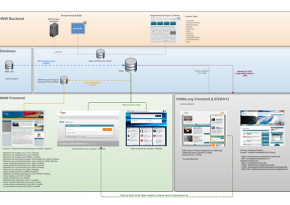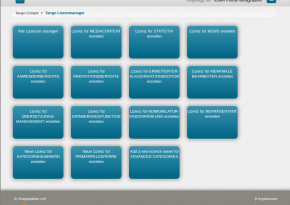The Central Data Hub of VDMA - Tango REST Interface (TRI)

As already mentioned in the blog post “Added value for VDMA members during the age of Industry 4.0”, there are specific websites for a few professional associations. In addition to topics such as member companies or nomenclature, these include information regarding matters like trade fairs, news and other relevant topics. In order to provide each page with specific information from Tango Backend, an interface has been developed called Tango REST Interface, short TRI. Technically, this is not a REST interface, as data can only get retrieved via GET. With the help of this interface content can now be retrieved from Tango Backend either across associations or for a specific association. The request can be managed or filtered with different parameters, for instance via language, category within the nomenclature or other kinds of data. A full text search is possible as well: The key words simply have to be transmitted as corresponding parameters with the inquiry.
The interface offers the following features:
- Content search
- Professional associations
- Companies
- Association nomenclature or individual categories
- Countries
- Representatives
- Case studies
- Innovation reports
- News
- Proximity search of companies
- Filter
- Professional associations
- Companies
- Initials of companies
- Categories
- Levels in nomenclature
- Language
- Start position
- Number of contents to be transmitted
There is each a singular and plural method for all requests which makes it possible to either retrieve many contents of one kind or only one particular one to e. g. display the details of a company. A security concept is implemented as well to prevent unauthorized users from accessing information from Tango Backend.
The technical implementation of this interface is a combination of CMS Drupal and Apache Solr. The contents are indicated in Apache Solr. Here, responses are also partially generated and directly filed with the index. This way, data bank inquiries don’t have to be made, which significantly reduces the response time. Apache Solr provides the opportunity to search for a lot of information in a short amount of time, filter it and deliver it, so that a website can quickly receive a response with the requested information, process it and deliver it. Delivery times of this interface are on average 100 to 300 ms, so that the loading times of the websites can be less than a second.








